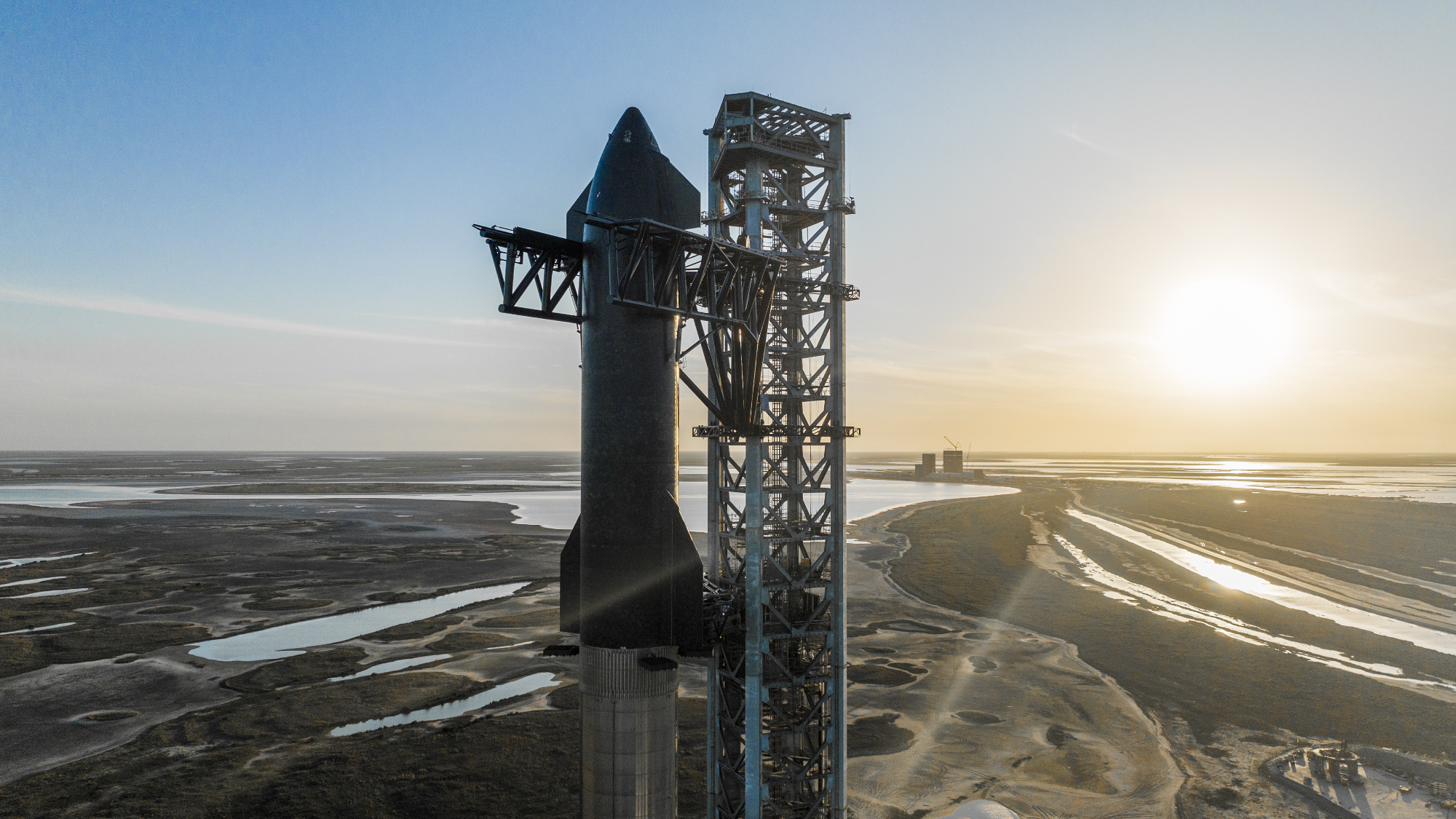
The U.S. Federal Aviation Administration (FAA) has delayed the completion of its environmental review of SpaceX's Starship program by another two weeks, to June 13.
That review, known as a programmatic environmental assessment (PEA), is gauging the environmental impacts of SpaceX's Starbase site in South Texas, where the company builds and tests its giant Starship vehicle.
The FAA released a draft PEA last September, saying at the time that the final report would likely be done by the end of the year. But the agency has repeatedly pushed the deadline back, saying it needs more time to consult with other government departments and analyze the thousands of public comments submitted in response to the draft.
Photos: SpaceX lifts huge Super Heavy rocket onto launch stand
You can get updates and read the draft PEA and related documents at the FAA's Starship page.
Starship consists of a huge first-stage booster called Super Heavy and a 165-foot-tall (50 meters) upper-stage spacecraft known as Starship. Both of these elements are designed to be fully and rapidly reusable.
SpaceX and its founder and CEO, Elon Musk, envision Starship as a potentially revolutionary advance, a system that could make Mars colonization and a variety of other ambitious exploration feats economically feasible.
Get the Space.com Newsletter
Breaking space news, the latest updates on rocket launches, skywatching events and more!
NASA sees considerable promise in Starship; the agency selected the vehicle to be the first crewed lunar lander for its Artemis program, which aims to put astronauts on the moon in the next few years.
SpaceX has conducted a number of high-altitude test flights of Starship prototypes at Starbase over the past few years, but it's working toward something much bigger: the system's first-ever orbital test mission. That flight will be the first that involves a Super Heavy booster. (On the test hops to date, Starship upper stages have flown solo.)
SpaceX cannot launch the orbital test mission without a passing grade from the final PEA. And that's not the only regulatory box that needs to be checked.
"The completion of the PEA will not guarantee that the FAA will issue a launch license," FAA officials wrote in an email that announced the latest PEA delay. "SpaceX's application also must meet FAA safety, risk and financial responsibility requirements."
Mike Wall is the author of "Out There" (Grand Central Publishing, 2018; illustrated by Karl Tate), a book about the search for alien life. Follow him on Twitter @michaeldwall. Follow us on Twitter @Spacedotcom or on Facebook.
Join our Space Forums to keep talking space on the latest missions, night sky and more! And if you have a news tip, correction or comment, let us know at: community@space.com.

Michael Wall is a Senior Space Writer with Space.com and joined the team in 2010. He primarily covers exoplanets, spaceflight and military space, but has been known to dabble in the space art beat. His book about the search for alien life, "Out There," was published on Nov. 13, 2018. Before becoming a science writer, Michael worked as a herpetologist and wildlife biologist. He has a Ph.D. in evolutionary biology from the University of Sydney, Australia, a bachelor's degree from the University of Arizona, and a graduate certificate in science writing from the University of California, Santa Cruz. To find out what his latest project is, you can follow Michael on Twitter.









